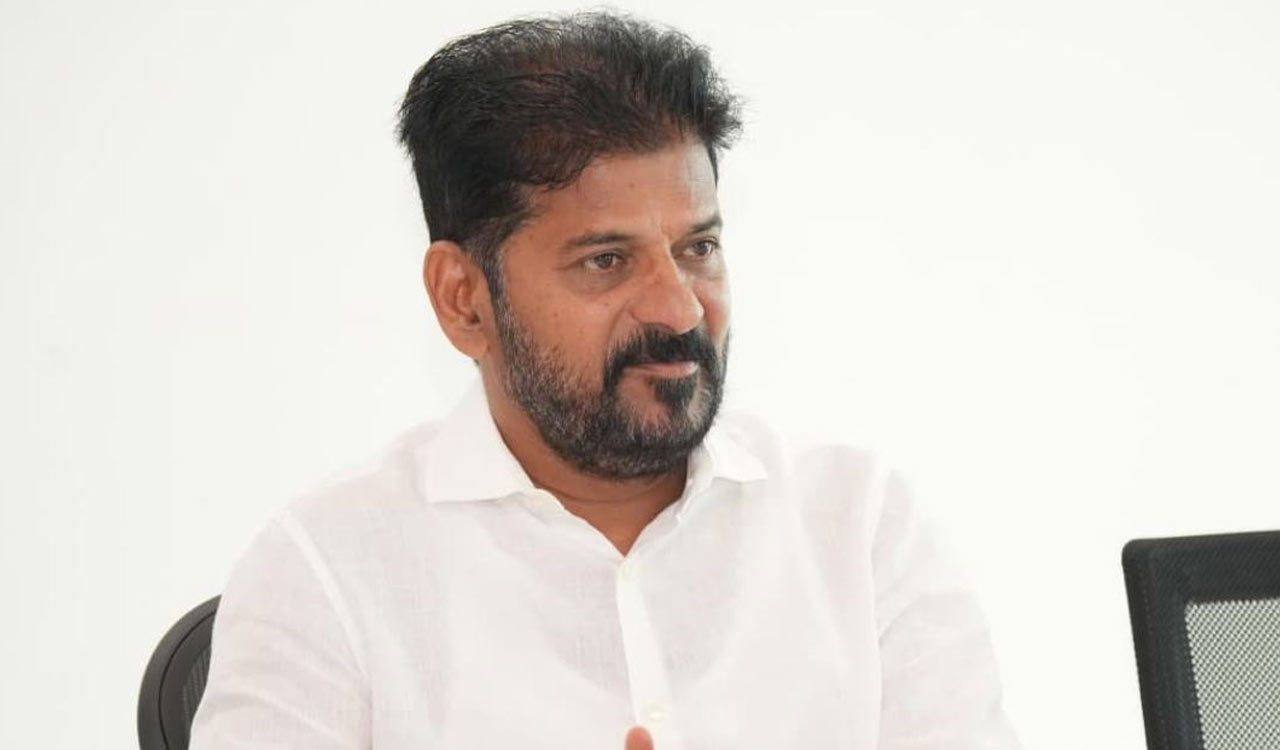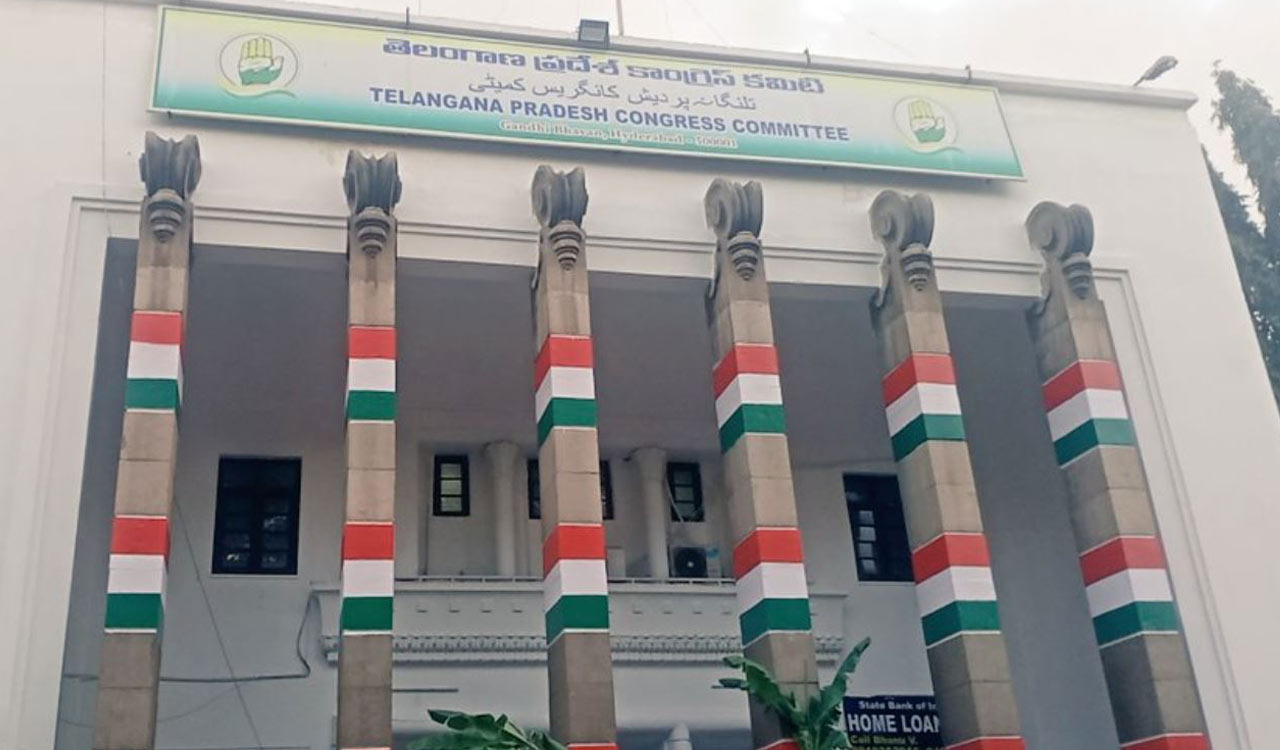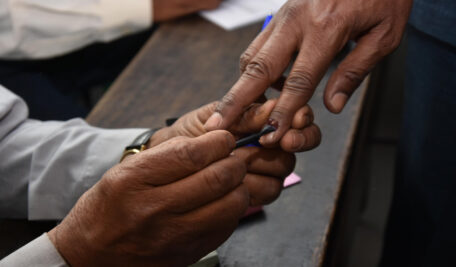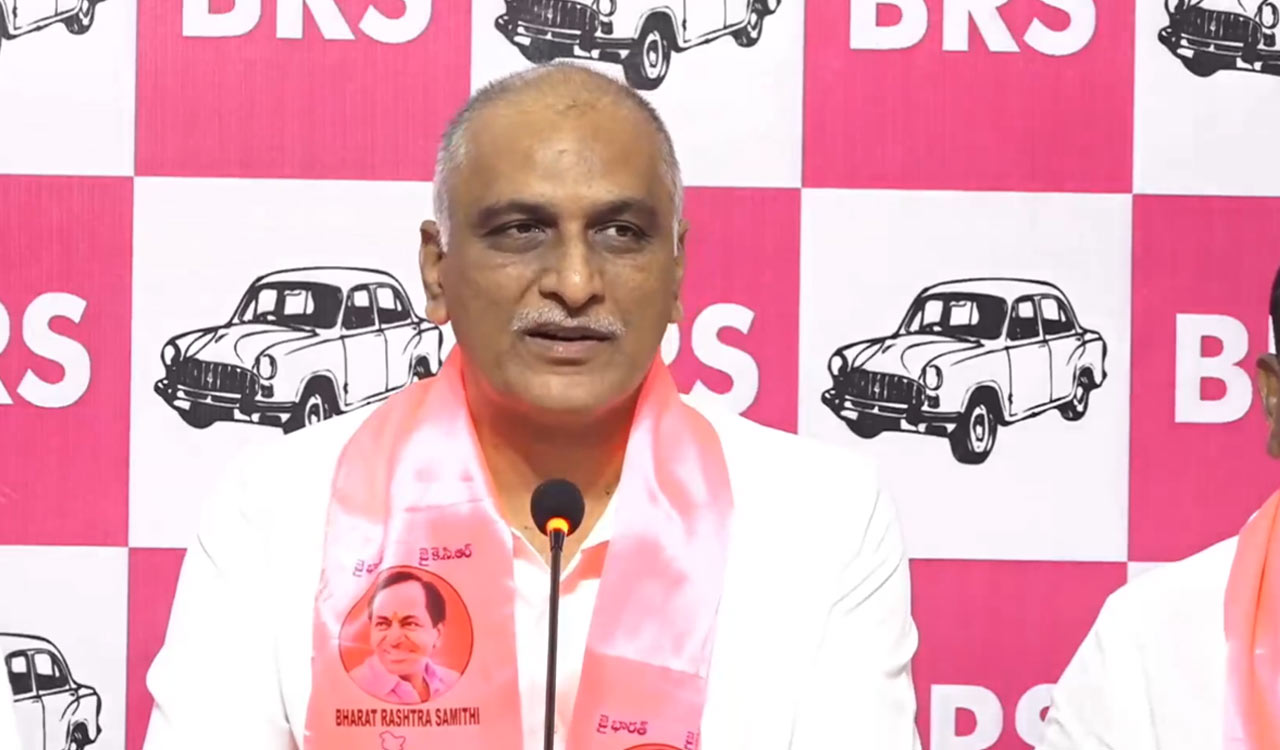PC Ghose Commission is PCC Commission, report is politically motivated trash, says Harish Rao
In a heated discussion in the Telangana Assembly, Former Minister T Harish Rao strongly criticised the Congress government over the PC Ghose Commission report. He accused the government of using the Commission for political vendetta, while ignoring the ongoing crises like the devastating floods and farmer distress.
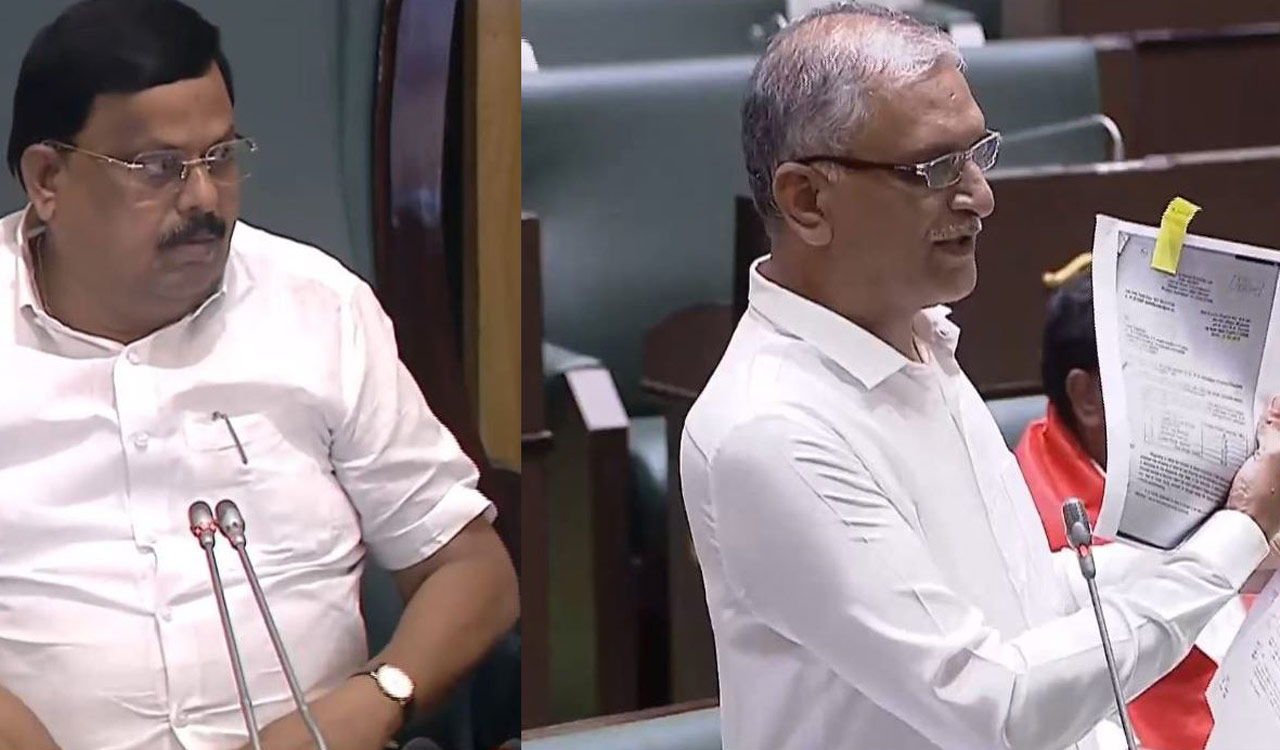
Hyderabad: Former Minister T Harish Rao launched a blistering attack on the Congress government during the Assembly discussion on the PC Ghose Commission report, accusing it of using commissions as tools of political vendetta, while ignoring people’s pressing problems.
Speaking during the short discussion in the Assembly on Sunday, Harish Rao gave a point-by-point rebuttal to the issues raised by the PC Ghose Commission in its report and also the Congress government in the House. The State was in turmoil with floods ravaging half of Telangana and farmers were suffering due to scarcity of urea, he said, stating that instead of addressing these crises, the government hurriedly convened a discussion on the Ghose Commission report to divert attention.
“People are crying for help, farmers are in distress, yet instead of being among them, the government has chosen to indulge in mudslinging politics inside this House,” he said, questioning why the debate was scheduled on a Sunday.
Harish Rao alleged that the Ghose Commission violated provisions of the Commission of Inquiries Act, 1952 by not issuing mandatory notices under Sections 8(b) and 8(c), thereby denying affected individuals, including himself, former Chief Minister K Chandrashekhar Rao, officials and engineers, the right to defend themselves. He said this rendered the report “unfair, illogical and politically motivated.”
Citing multiple judicial precedents, he referred to cases including Ramkrishna Dalmia vs Justice Tendulkar (1958), Kiran Bedi vs Committee of Inquiry (1989), L.K. Advani vs State of Bihar (2003), and Jayalalitha vs State of Tamil Nadu (1997), all of which struck down inquiry reports for procedural lapses.
He compared the Ghose Commission with past commissions such as the Shah Commission (1975 Emergency) and the Liberhan Commission (Babri Masjid demolition), accusing both Congress and BJP of double standards in rejecting reports when they were in the dock but defending the Ghose Commission today.
“Commissions are meant for fact-finding, not political theatrics. When procedure is ignored, any such report is nothing more than waste paper. This entire exercise is a conspiracy planned much before elections. Procedural fairness is not optional. It is a constitutional right. This report will collapse the moment it is tested in court,” he said.
Harish Rao, pointing out that the State government had filed a caveat in the Supreme Court in advance anticipating that the BRS would move the apex court, also recalled that the Congress had been discrediting Medigadda even before the minor problem cropped up. He argued that this proved that the report was being used as a political weapon.
Accusing the Congress government of pushing a flawed and trash report while ignoring technical facts, past correspondence from the Central Water Commission (CWC) and the advice of retired irrigation engineers committee, Harish Rao said leaders like Indira Gandhi and Pranab Mukherjee had approached courts when commissions failed to follow natural justice, and his move was no different.
“We went to court to protect our rights, not to stop discussion in the Assembly. Our plea was simple: trash this report,” he declared, countering Ministers N Uttam Kumar Reddy and D Sridhar Babu.
Dismissing allegations by Minister Komatireddy Venkat Reddy that he was shifting stands, Harish Rao said, “Changing words is Komatireddy’s habit, not mine. The Commission’s report cannot stand in a court of law. It is unfair, illogical and politically motivated.”
He pointed out that as early as February 18, 2015, the CWC had clearly stated there was no availability of 160 tmcft at Tummidihatti. Despite efforts, including appeals to Maharashtra’s Water Resources Minister and Chief Minister in the presence of then Maharashtra Governor Ch Vidyasagar Rao, the neighbouring State did not agree to the project.
“It is not that we did not try. But with lack of water, Maharashtra’s refusal and the presence of Chaprala Wildlife Sanctuary, Tummidihatti was unviable. That is why we shifted to Medigadda. We saved Rs.11,000 crore that would have been wasted on a dry project,” he said, asking why the previous Congress government in erstwhile Andhra Pradesh and the current Congress government failed to take up construction at Tummidihatti, if it was the best viable location for the project.
Harish Rao also accused the Ghose Commission of selectively quoting from documents. He cited former union Minister Uma Bharti’s letter, which on the third page clearly stated that water was not available, but the Commission and Chief Minister A Revanth Reddy “read only the first page, ignored the rest, and twisted facts.”
Explaining the need to shift the project site from Tummidihatti to Medigadda, he said 16 tributaries and streams from Maharashtra and another eight from Telangana join the Godavari River over a 116 km stretch before Medigadda, ensuring around 120 tmcft water availability at the site. He emphasised that the move, along with construction of Annaram and Sundilla, was recommended by a committee of retired engineers, whose reports the Ghose Commission itself had received but deliberately ignored. He said the Ghose Commission and Revanth Reddy were again nitpicking select lines and twisting them to their convenience, without getting into specifics.
“Even retired engineers told the Commission clearly that Medigadda, Annaram and Sundilla were planned on their advice. The Commission’s refusal to acknowledge their reports exposes its bias. This is why we are calling it a PCC Commission,” he said.
He also countered the Congress’ claims on Detailed Project Reports (DPRs), reminding them that in 2009, the then government had called tenders and given mobilisation advances for 28 packages of Pranahita without a DPR.
“During Jalayagnam, many projects were tendered without DPRs. But for Kaleshwaram, we submitted the DPR to the CWC,” he argued.
Slamming Uttam Kumar Reddy, Harish Rao said Congress was guilty of double standards on the National Dam Safety Authority (NDSA) as well. “In Parliament, you opposed the NDSA Bill, but now you call them masters and experts. Polavaram collapsed 10 times, including five times when the present NDSA chairman Chandrasekhar Iyer was CEO. Did NDSA send reports then? Why one rule for Polavaram, another for Kaleshwaram?” he asked.
Listing Kaleshwaram’s scale, Harish Rao said: “It is not just Medigadda. It has three barrages, 225 gates, 228 pillars, 15 reservoirs, 21 pump houses, 19 substations, 203 km of tunnels, 1,531 km of gravity canals and 98 km of pressure mains. It has a storage capacity of 141 tmcft and lifts water to a height of 530 metres. Against such a massive system, two sinking piers at Medigadda’s seventh block cannot be used for political drama.”
He added that repairs for the block would cost only Rs.300 crore–Rs.400 crore, a fraction of the project’s overall cost. “Instead of resolving, this government is creating political ruckus. Why?” he asked.
కాళేశ్వరం ఆయకట్టుపై కాంగ్రెస్ దుష్ప్రచారాలను
అసెంబ్లీ సాక్షిగా తిప్పికొట్టిన మాజీ మంత్రి @BRSHarish pic.twitter.com/BPRSDS8ag3— BRS Party (@BRSparty) August 31, 2025
Related News
-
Writer of ‘Pawan Kalyan Hatao..’ book drowns after car plunges into Khammam reservoir
3 mins ago -
RS Praveen Kumar seeks SEC action over ‘Congress excesses’ in civic polls
3 mins ago -
Sanjay’s 68 helps USA beat Namibia by 31 runs in T20 World Cup
19 mins ago -
Over 70,000 devotees throng Vemulawada temple on Maha Shivaratri
26 mins ago -
Congress banks on independents, ex-officio votes after hung ULB verdicts
33 mins ago -
Congress candidates demand return of cash, gifts after municipal poll losses
36 mins ago -
Youth dies on Valentine’s Day after suicide attempt over proposal rejection
46 mins ago -
Hung verdicts make BJP’s support crucial in five municipal bodies in erstwhile Medak
51 mins ago

